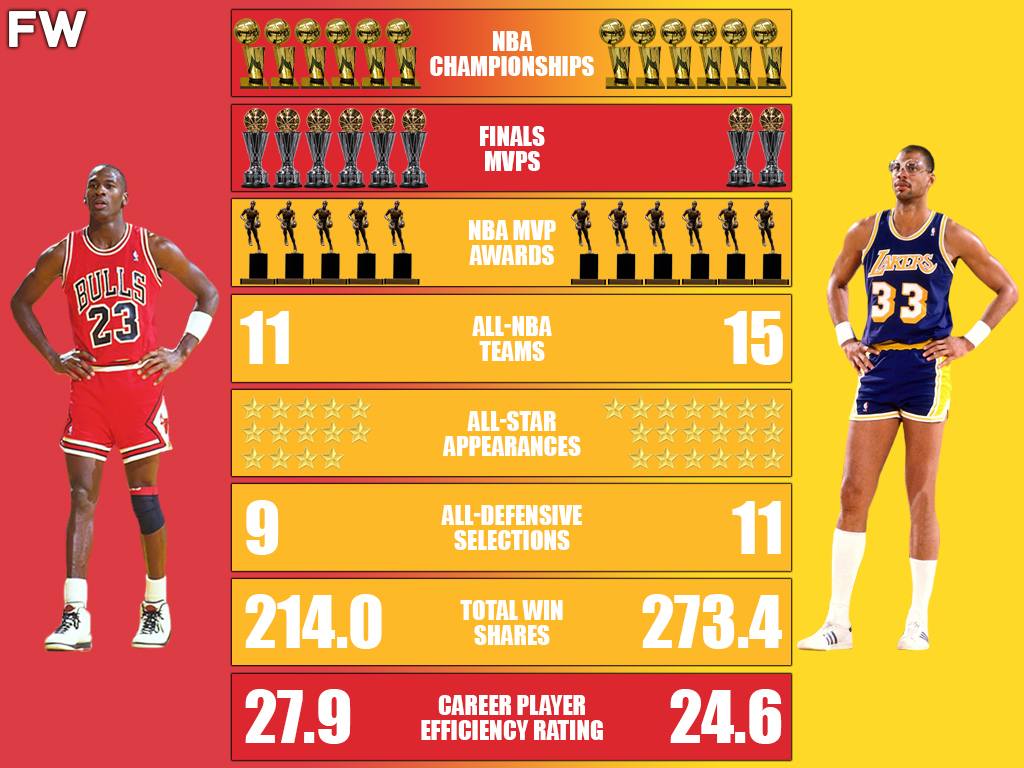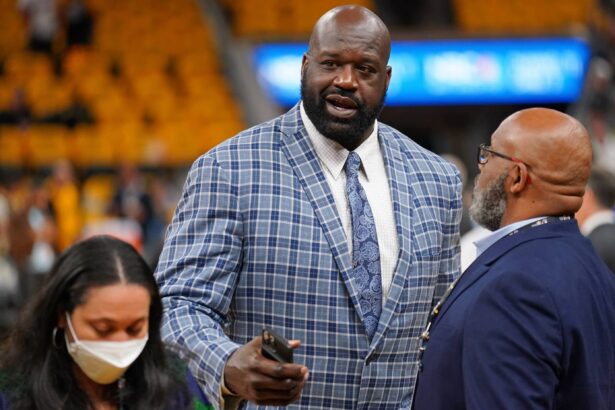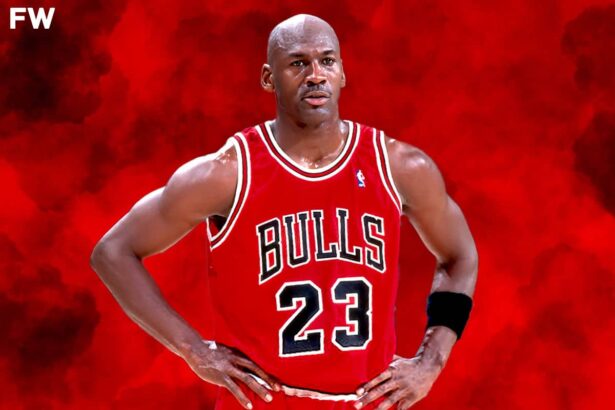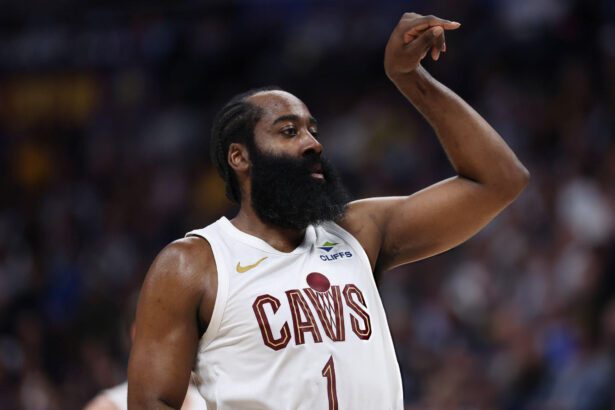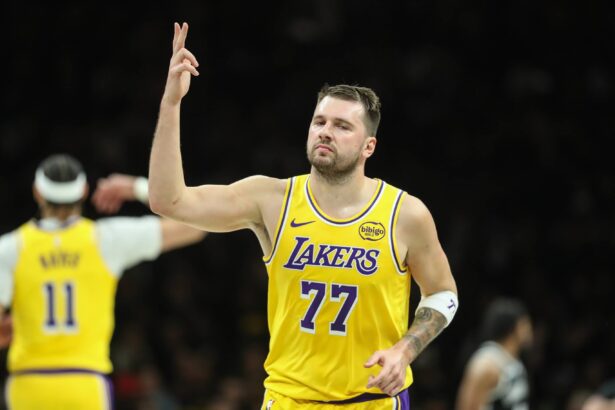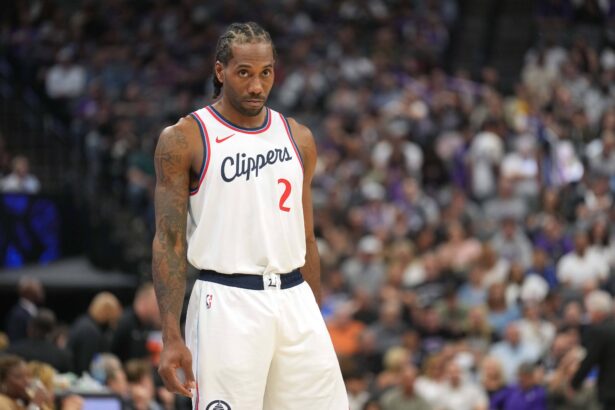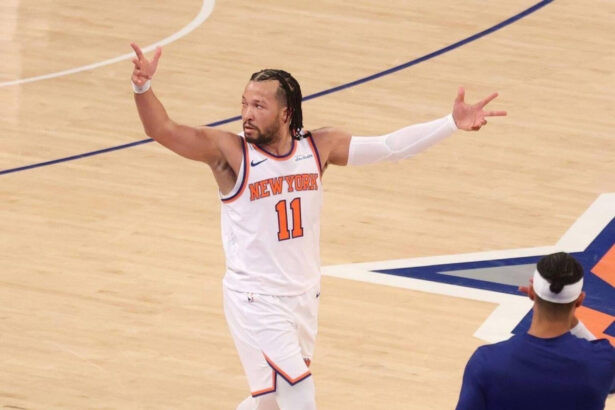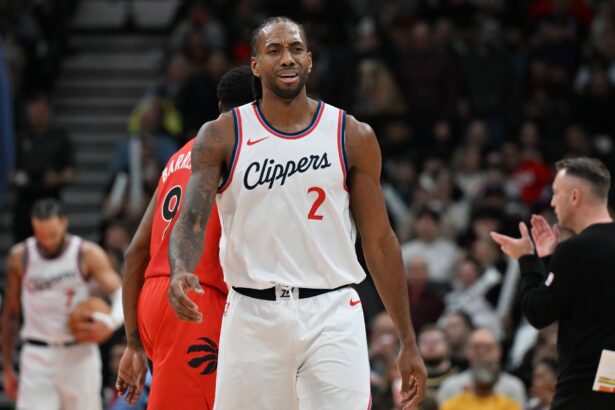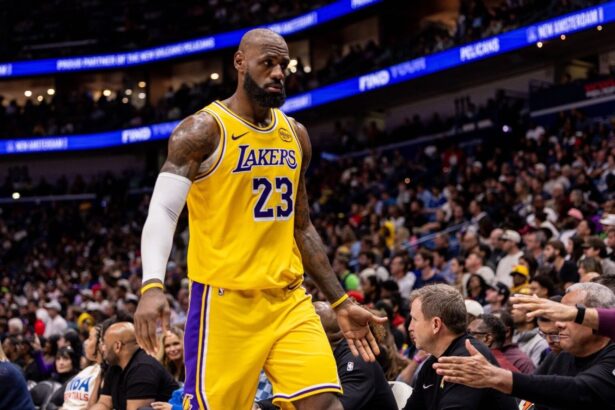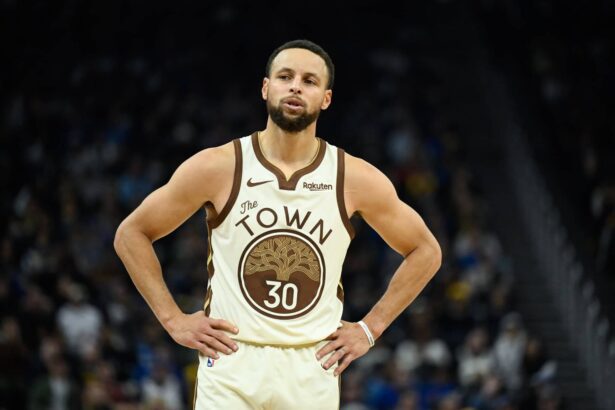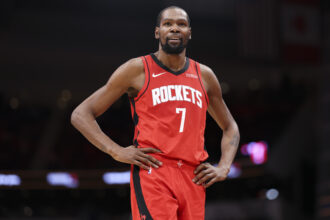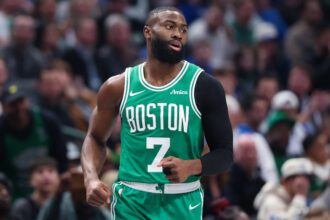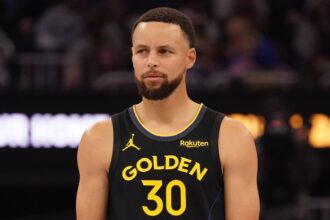For decades, NBA fans and analysts alike have compared the careers of Michael Jordan and Kareem Abdul-Jabbar. Until a man named LeBron James began to ascend toward the top of the NBA hierarchy, the highly-agitating GOAT debate and discussion was one between Jordan and Kareem. Each of these players achieved the highest level of success in their careers multiple times too. MVPs, championships, All-Star selections, and other accolades line their trophy cases and make for an interesting basketball conversation.
- Championships
- Finals MVP Awards
- MVP Awards
- All-NBA Teams
- All-Star Selections
- All-Defensive Teams
- Total Win Shares
- Career Player Efficiency Rating
- Final Score
- Michael Jordan vs. Kareem Abdul-Jabbar 2-5
- Who Is The Real GOAT: Michael Jordan Or Kareem Abdul-Jabbar?
- Next
- LeBron James vs. Kareem Abdul-Jabbar Career Comparison: King James Is Not Better Than Kareem
- The NBA Players Who Have Won The Most MVP Awards: Kareem Abdul-Jabbar Is The Ultimate Leader With 6 Trophies
- Michael Jordan vs. LeBron James Career Comparison: The GOAT Against The Second Greatest Of All Time
- NBA Finals Performances By Michael Jordan, LeBron James, And 23 Other NBA Legends
- The NBA Players Who Have Won The Most Finals MVP Awards: Michael Jordan Is The Real GOAT With 6 Trophies
That is why today, we will be taking a look at these 2 all-time greats through the lens of accolades and some advanced stats to determine who the real GOAT is. Of course, LeBron James’ name is in that conversation, as well as maybe 1 or 2 other former stars. It should be noted that the comparison below is not an end-all-be-all determining factor in the debate between these 2, especially when we add context to their paths to greatness and the teammates alongside them. As the debate rages on, we are here to continuously shine the spotlight on it.
This is the career comparison between Michael Jordan and Kareem Abdul-Jabbar.
Championships
Michael Jordan: 6 (1991, 1992, 1993, 1996, 1997, 1998)
Kareem Abdul Jabbar: 6 (1971, 1980, 1982, 1985, 1987, 1988)
Both Michael Jordan and Kareem Abdul-Jabbar are owners of 6 Larry O’Brien Trophies, awarded to the team who wins the NBA championship each season. The glaring difference between these two is the fact that Michael Jordan never lost an NBA Finals series, winning 6 times in 6 trips to the series. Jordan and the Chicago Bulls also accomplished this in the form of 2 three-peats from 1991 through 1993 and 1996 through 1998. Jordan was also named the Finals MVP in all 6 Finals wins in his career, while Kareem won it just twice, but that is coming later.
During his 20-year career, Kareem spent exactly half of it competing for and in the NBA Finals. With 10 Finals appearances in his career, Kareem managed to win 6 NBA titles, 1 with the Milwaukee Bucks and 5 with the Los Angeles Lakers. Kareem helped the Milwaukee Bucks win their first NBA championship in 1971 and then won 5 more with the Lakers in 1980, 1982, 1985, 1987, and 1988. With 6 titles in 10 tries compared to Jordan’s 6 titles in 6 tries, a slight advantage has to be given to the superstar out of Chicago.
Advantage: Even
Finals MVP Awards
Michael Jordan: 6 (1991,1992, 1993, 1996, 1997, 1998)
Kareem Abdul-Jabbar: 2 (1971, 1985)
Michael Jordan has won the most Finals MVP awards in NBA history with 6. Jordan was the best player on the floor for all 6 championship series that he won with the Bulls. In 35 Finals games, Jordan averaged 33.6 PPG, 6.0 RPG, 6.0 APG, and 1.8 SPG. His best Finals series as an individual came in 1993 over the Phoenix Suns. In the 6-game series, Jordan averaged 41.0 PPG, 8.5 RPG, and 6.3 APG while being named Finals MVP.
As for Kareem, he was named Finals MVP twice in his career. Not that winning Finals MVP twice in your career is necessarily bad, but it pales in comparison to 6 total Finals MVP awards. Kareem led the Bucks to their first NBA title in 1971, winning Finals MVP with 27.0 PPG, 18.5 RPG, and shot 60.5% from the floor. He would also win a Finals MVP award in 1985 for the Lakers in their win over the Boston Celtics in the Finals. He averaged 25.7 PPG, 9.0 RPG, 5.2 APG, and 1.5 BPG in the 6-game series.
Advantage: Michael Jordan
MVP Awards
Michael Jordan: 5 (1988, 1991, 1992, 1996, 1998)
Kareem Abdul-Jabbar: 6 (1971, 1972, 1974, 1976, 1977, 1980)
In recent days, the NBA has decided to now name the MVP trophy after Michael Jordan. This seems fitting, considering Jordan won 5 awards in 11 seasons from 1988 through 1998. Jordan won his first MVP award in 1988 when he led the NBA in points and steals with 35.0 PPG and 3.2 SPG. It was Jordan’s second of 10 scoring titles, and 1st of 3 steals titles. Jordan would win 3 more MVP awards leading up to the 1998 season. Jordan won his 5th and final MVP in 1998 with 28.7 PPG, 5.8 RPG, 5.5 APG, and 1.7 SPG leading the Bulls to 62 wins and their 6th NBA championship.
Kareem Abdul-Jabbar not only won 6 MVP awards, but he also won all 6 of these awards within 9 years of each other. Kareem took home his first MVP in 1971 when he averaged 31.7 PPG, 16.0 RPG, and shot 57.7% from the floor. It would be his first of back-to-back scoring titles, and later, he went on to lead the Bucks to their first NBA championship. Over the next 5 years, Kareem would win 4 more MVP awards during that time. He would win his final MVP in 1980 when he averaged 24.8 PPG, 10.8 RPG, and 4.5 APG and led the NBA with 3.4 BPG.
Advantage: Kareem Abdul-Jabbar
All-NBA Teams
Michael Jordan: 11 (10 First Team, 1 Second Team)
Kareem Abdul-Jabbar: 15 (10 First Team, 5 Second Team)
Considering the production from each of these players and the amount that they won in the NBA, it isn’t hard to understand why Jordan and Kareem made so many All-NBA Teams in their careers. Jordan was selected to 10 All-NBA First Teams in his 15-year career and 1 Second Team in his rookie season. Jordan made his All-NBA First Teams all from 1987 through 1998, averaging 32.0 PPG, 6.3 RPG, 5.4 APG, and 2.5 SPG over that span.
Kareem was also selected to the All-NBA First Team 10 times during his career and was selected to the Second Team 4 more times than Michael Jordan. Kareem was selected to the All-NBA Second Team in his rookie season and the All-NBA First Team 10 times between 1971 and 1986 and 5 Second Teams. This marked 15 straight selections to an All-NBA Team, with 1975 being the only exception.
Advantage: Kareem Abdul-Jabbar
All-Star Selections
Michael Jordan: 14
Kareem Abdul-Jabbar: 19
Both Michael Jordan and Kareem Abdul-Jabbar were automatic locks for the NBA’s All-Star Game nearly every season of his career. Michael Jordan played 15 seasons in the NBA and was named to an All-Star Team 14 times. The only season in which he played and wasn’t selected as an All-Star was 1995. Jordan had returned after nearly 2 seasons off to play 17 games and the playoffs with the Chicago Bulls. Jordan also took home the MVP award for the game 3 times in 1988, 1996, and 1998.
Kareem was also an automatic lock for the All-Star Game every season. In 20 seasons of basketball, Abdul-Jabbar was selected to 19 All-Star games in his career. The only exception for him came in 1978 when he missed a large chunk of the first half of the season and ended up missing 20 games all year. He still averaged 25.8 PPG, 12.9 RPG, 1.7 SPG, and 3.0 BPG. He was never able to secure an All-Star Game MVP but 19 selections in 20 seasons speak for itself.
Advantage: Kareem Abdul-Jabbar
All-Defensive Teams
Michael Jordan: 9 (9 First Team)
Kareem Abdul-Jabbar: 11 (5 First Team, 6 Second Team)
Both Michael Jordan and Kareem Abdul-Jabbar were masters of their craft on the defensive side of the ball. For Jordan, his position required attention to the perimeter, where he baited opponents into bad passes or just straight up took it from them on occasion. The difference between Jordan’s All-Defensive selections and Kareem’s is the fact that Jordan has 4 more First Team selections than Kareem. Jordan also took home a Defensive Player of the Year award in 1988, something Kareem never did due to the non-existence of the award in his prime.
Kareem’s defense will always be considered infinitely more valuable than Jordan’s. The main reason for this is the fact that interior defense and blocking/altering easier shots is more valuable than stopping possessions at the perimeter. Both mean a lot to the success of a team, but the interior defense will always reign supreme. Abdul-Jabbar would have most likely won a Defensive Player of the Year award had it existed during his peak defensive days. He led the NBA in blocks 4 times during his career and ranks 3rd on the NBA’s all-time list for blocks with 3,189 in his career.
Advantage: Kareem Abdul-Jabbar
Total Win Shares
Michael Jordan: 214.0
Kareem Abdul-Jabbar: 273.4
Michael Jordan and Kareem Abdul-Jabbar were both elite players when it came to their competition, and the number of win shares accounted for. With 214 win shares, Jordan led the NBA 9 times in total win shares and 8 times in offensive win shares. Win shares are a pretty good metric for measuring a player’s impact on winning, and 214 for Jordan in 15 seasons comes to an average of 14.2 per year. If he had never taken off during his prime seasons, this might be much closer than it is.
This in no way takes away from the way Kareem dominated the NBA during his prime and beyond. For his career, Kareem led the NBA in win shares 9 times as well. He led the NBA twice in defensive win shares and 6 times in offensive win shares, speaking to his true value on both sides of the court. Even in his final 3 seasons, Kareem was able to register 15.7 win shares over those 3 years, adding to his already incredible total.
Advantage: Kareem Abdul-Jabbar
Career Player Efficiency Rating
Michael Jordan: 27.9
Kareem Abdul-Jabbar: 24.6
The way a player’s efficiency is measured has varied throughout the years. The PER stat takes into account shooting, turnovers, and a bit of defense to measure a player’s impact on the court and their overall efficiency. Michael Jordan was an efficiency expert with 7 straight seasons of an NBA-leading PER from 1987 through 1993. He reached the 30.0 PER mark4 seasons in a row from 1998 through 1991 as well.
As for Kareem, he also was a master of efficiency, especially during his peak. From 1971 through 1981, Kareem led the NBA in PER 9 times out of 11 seasons. He had a 20.0 PER or better every season of his career up until 1986-87, which is what probably dropped him below Jordan for career total. Kareem never reached the 30.0 PER mark like MJ, but he did hit 29.0 PER 3 times.
Advantage: Michael Jordan
Final Score
Michael Jordan vs. Kareem Abdul-Jabbar 2-5
Who Is The Real GOAT: Michael Jordan Or Kareem Abdul-Jabbar?
At first glance at these numbers, one could wonder how it was ever even a conversation between these two as the greatest of all time. What we did here today is do our best to add context to every situation and category to explain that just a little further. At their peaks, Jordan was just too unstoppable, with 6 NBA championships and being the best player on the court for all of them. Jordan was clearly a better scorer but he also never got outshined by any of his teammates in the NBA’s biggest games.
The leading factor for Kareem’s numbers being inflated over Jordan’s comes down to longevity. If Jordan had never retired in 1994 and most of 1995, along with the retirement after the 1998 season, this would be much closer to the naked eye. Longevity is by no means a bad thing, but it does add to your overall career in a significant way. The accomplishments Jordan accumulated were done so in 15 seasons in the NBA, 13 years if we only count his seasons with the Bulls. Kareem’s accolades came over a period of 20 years.
When Jordan was at his absolute best during his career, he was always the best player on the Bulls. During Kareem’s peak with the Lakers, Magic Johnson outshined him on more than one occasion. Of course, Jordan had help from teammates such as Scottie Pippen, Toni Kukoc, and Dennis Rodman but none of them ever outworked him for an MVP or Finals MVP award like Magic Johnson and James Worthy did with Kareem on the court. It can be argued that Kareem was the 2nd best player on 5 of his 6 championship teams which is an argument that could never be made against Michael Jordan. Simply put, Jordan was a better leader and scorer, and more valuable to winning in their primes.
This takes absolutely nothing away from Kareem, either. As you can see before you, Kareem has plenty of a case to be considered the game’s greatest player. I think he is personally 3rd in the NBA’s hierarchy behind Michael Jordan and LeBron James. We recently did a career comparison of Michael Jordan and LeBron James, and the result was very interesting.
For anyone who may have Kareem as their top player, the case and point are there for him as someone worthy of that status. I also believe that the greatest career of all time belongs to Michael Jordan and is untouchable to most who dare to chase him.
We sincerely appreciate and respect you as a reader of our site. It would help us a lot if you follow us on Google News because of the latest update.
Thanks for following us. We really appreciate your support.

